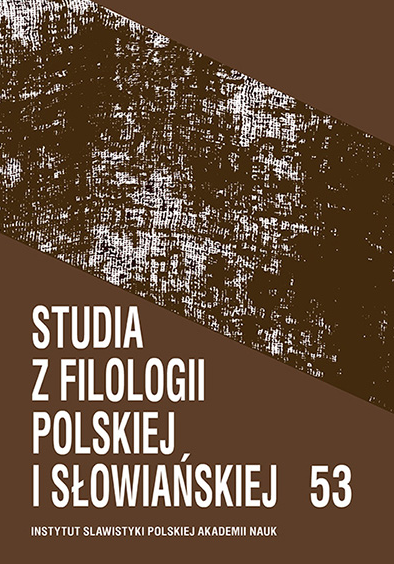Предикатно-аргументная структура польских и болгарских многоприставочных глаголов
Predicate-argument structure of Polish and Bulgarian polyprefixal verbs
Author(s): Julia Mazurkiewicz-SułkowskaSubject(s): Syntax, Western Slavic Languages, South Slavic Languages
Published by: Instytut Slawistyki Polskiej Akademii Nauk
Keywords: verba mentalis; mental verbs; predicate-argument structure; polyprefixal verbs; Slavic languages;
Summary/Abstract: The modern Bulgarian and Polish languages display a tendency to create polyprefixal verbs that are characteristic carriers of expression in the spoken language. This tendency is especially apparent in Bulgarian. A question then arises: is the complexity of formative structure of such units reflected in their predicate-argument structure? In order to answer this question, it was necessary to conduct an analysis of predicate-argument structure of the polyprefixal verbs belonging to the class of the verba mentalis. The study has shown that all the analyzed polyprefixal verbs, despite their formal complexity, constitute a uniform class of two-argument predicates that create very similar sentence structures. Against the background of other verba mentalis, they are distinguished by very high frequency of occurrence of independent elements having a pleonastic value in relation to the verbum.
Journal: Studia z Filologii Polskiej i Słowiańskiej
- Issue Year: 2018
- Issue No: 53
- Page Range: 229-244
- Page Count: 16
- Language: Russian

